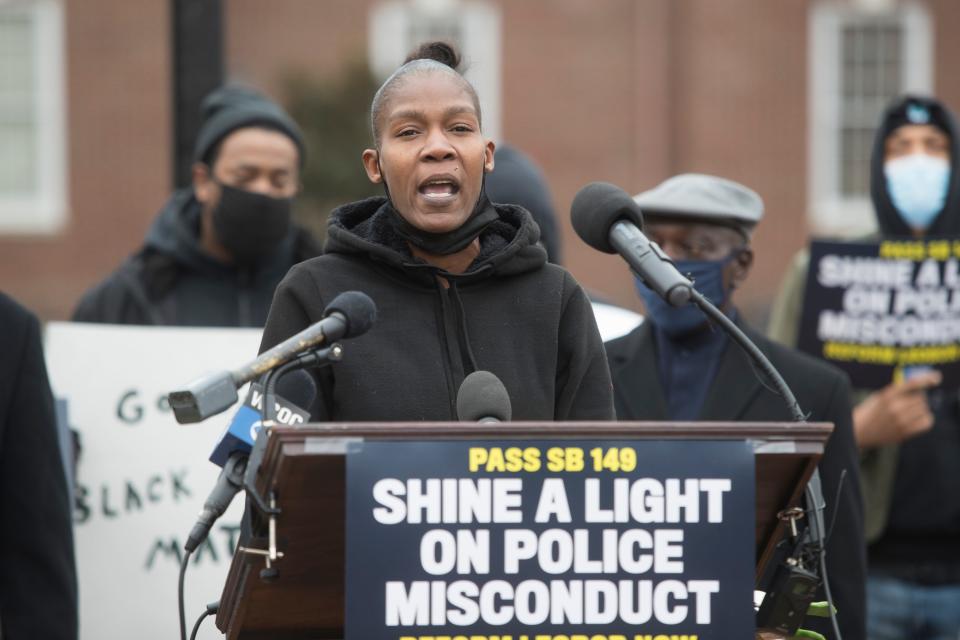The Delaware Court of Chancery remains mysterious — and white | Opinion
- Oops!Something went wrong.Please try again later.
To put it simply, the Delaware Court of Chancery has a hold on the American people, yet, most Americans have not heard of the centuries-old court, until now, with the Twitter v. Musk case. How is it possible that an issue that can affect social media users around the world lies in the hands of an obscure, secretive, and unjust court? The answer is simple: disregarding the people and the businesses that rely on fair judicial processes is easy when those in power are more focused on keeping the old boys club togetherIn July, when it was announced that Twitter was suing Tesla, Inc. CEO Elon Musk in a lawsuit forcing the entrepreneur to make good on his promise to acquire the social media giant, I was concerned:
Concerned that the Delaware Court of Chancery would use the high-profile case as a means to escape the very consistent allegations of judicial negligence.
Concerned that the court would remain inconsistent in providing fair and transparent rulings for all parties seeking their leadership.
And most worrisome, concerned for business owners across the nation that are looking to the chancery court for direction on acquisition-based cases will be gifted with a lack of answers as to if precedence will apply to their future business dealings.
Either way, it is folded, the Delaware Court of Chancery holds all the power and none of the accountability.
Echoing The Rev. Al Sharpton, the archaic and secretive institution, the Delaware Court of Chancery, has had multiple attempts to right its wrongs and address its lack of transparency. The chancery court holds proceedings without juries. They prohibit cameras in the courtroom, which does not allow citizens and good government groups, like Citizens for Judicial Fairness, to monitor justice and transparency. The court resists randomized wheel spins for case assignments, meaning chancellors can select cases based on their self-interest. The court has even dismissed requests for publicly-accessible financial disclosure for state justices, shielding the public from the right to know about leaders' investments, businesses, and charitable affiliations and gifts. The same institution with ingrained stealth practices has decided cases involving the likes of Facebook, McDonald's, Goldman Sachs does not have a single justice of color. Even the infamous TransPerfect case spawned unprecedented backlash from a group of employees who founded a judicial reform movement as a result. How is it that in 2022, we have segregated-like courts deciding on the livelihoods of workers across the nation?
When a vacancy opened up earlier this year as Vice Chancellor Joseph Slights III announced his retirement, Gov. John Carney had an opportunity to create tangible change in the courtroom. He had a chance to follow Delaware's native son, President Joe Biden, who earlier this year nominated a woman to the U.S. Supreme Court who reflected the diversity of this country. Instead of using his position of power to nominate someone that our children can see themselves in, he enlisted Nathan Cook for the job — a white man with experience working and living in primarily white spaces.
We, the Delaware people, have advocated tirelessly on the importance of reform, not just for Black and Brown people, but for the current white leaders in the court today. Studies have shown that when leadership is committed to diversifying their workplaces, it creates stronger and more innovative entities. Surrounding yourself with voices that do not have the same life experiences as you is invaluable to growth and progress. It is a grave disappointment and a horrific insult to the masses of local citizens that need a change in the court. Echoing Sharpton, it is clear that Carney's appointments have failed to live up to democratic ideals of equal representation, as that is not his priority.

We, as a nation, need to have a moment of deep reflection that spurs change. We have been swimming in harsh waters of injustice without a lifejacket for so long. We live in a society where beautiful souls like my brother, Jeremy McDole, a paraplegic, can be murdered by police officers while sitting in a wheelchair. Would you believe me if I shared that justice has not been served and charges have not been brought to this day? This topic hits close to home because I know the dangers of court systems that refuse to listen to the voices of their citizens. As I work to ensure that black and brown youths and adults have the right to be represented fairly in every facet of American systems, I remain hopeful that change will come.
As the late, great Martin Luther King Jr said, "The time is always right to do what is right," and "injustice anywhere is a threat to justice everywhere."
Keandra McDole is a Wilmington activist.
This article originally appeared on Delaware News Journal: Delaware Court of Chancery remains worrisome

